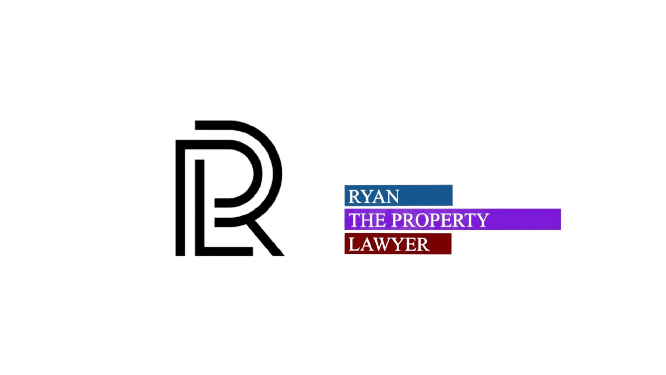The complicated field of law that controls the ownership, lease, and development of commercial real estate holdings is commercial real estate law. Contracts, leases, and zoning restrictions are some of the several legal instruments involved in commercial real estate law. In addition to finance, property management, and environmental compliance, commercial real estate law addresses a variety of legal challenges.
Table of Contents:
- Commercial Real Estate Transactions
- Purchase and Sales Contracts
- Commingled Leases
- Commercial Real Estate Development
- Conclusion
Commercial real estate lawyers play a crucial role in counseling clients on the legal requirements and inherent dangers of commercial real estate transactions. Commercial real estate lawyers assist clients in navigating the complicated legal terrain of commercial real estate law and safeguard their interests throughout commercial real estate transactions.
Commercial Real Estate Transactions
Transactions involving commercial real estate involve the sale, acquisition, or lease of commercial real estate properties. Transactions involving commercial real estate can be complicated and include several stakeholders, including buyers, sellers, landlords, renters, and lenders.
Commercial real estate lawyers help clients negotiate and construct commercial remote real estate leases and contracts. Commercial real estate lawyers can assist clients in comprehending the legal ramifications of a contract or lease and safeguard their interests. In addition to advising clients on financing choices, commercial real estate lawyers may also aid in the creation and evaluation of loan agreements.
Purchase and Sales Contracts
Buy and sale agreements are the legal documents that regulate the selling of commercial real estate. Buy and sale agreements include the transaction’s terms and conditions, including the purchase price, closing date, and any contingencies. Commercial real estate lawyers may assist clients in negotiating and writing buy and sale agreements while safeguarding their interests.
In order to identify any hazards and liabilities connected with the property, commercial real estate lawyers can evaluate and advise clients on due diligence studies, such as environmental surveys and property condition evaluations.
Commingled Leases
Commercial leases are legal agreements that control the use and occupancy of commercial real estate. The terms and conditions of commercial leases include the rent, lease duration, and maintenance obligations. Commercial real estate lawyers may assist clients in negotiating and writing business leases while protecting their interests.
Commercial real estate lawyers can also assist clients on landlord-tenant issues, such as eviction processes, lease disputes, and building code and zoning compliance.
Commercial Real Estate Law Development
The development of commercial real estate entails the creation and enhancement of commercial real estate properties. Land use rules, zoning, and environmental compliance are a few of the legal concerns that may arise during commercial real estate development.
Commercial real estate lawyers may assist clients in acquiring permits and approvals from regulatory authorities and assuring compliance with land use and zoning laws. Moreover, commercial real estate lawyers may aid clients in negotiating and structuring building contracts and protecting their interests.
Usage of Land and Zoning
Land use and zoning rules control the development and use of land in a particular location. Land use and zoning rules can be complicated and jurisdiction-specific. Commercial real estate lawyers may aid clients in comprehending and adhering to land use and zoning requirements, as well as acquiring the required permissions and approvals.
In addition to advising clients on land use and zoning problems, commercial real estate lawyers can also provide counsel on variances and appeals.
Construction Agreements
Construction contracts are legal documents that control the development and construction of commercial real estate developments. The terms and conditions of a construction project, including the scope of work, payment, and schedule, are outlined in the construction contract.
Commercial real estate lawyers can aid their clients in negotiating and structuring building contracts and protecting their interests. Moreover, commercial real estate lawyers can counsel clients on construction problems, such as delays, flaws, and contract violations.
Conclusion
Commercial real estate law is a dynamic field of law that encompasses a variety of legal concerns, including as contracts, leasing, finance, property management, and environmental compliance. Commercial real estate lawyers play a crucial role in counseling clients on the legal requirements and inherent dangers of commercial real estate transactions.
Commercial real estate lawyers in Ontario equip their clients with the legal knowledge and direction necessary to traverse the complicated world of commercial real estate law. They assist customers in protecting their rights throughout commercial real estate transactions, negotiate and prepare contracts and leases, and assure regulatory and legal compliance.
Whether you are the buyer, seller, landlord, or renter in a commercial real estate transaction in Ontario, you must contact with a commercial real estate lawyer. You may guarantee that your interests are protected and that your transaction is done in accordance with applicable rules and regulations by working with a skilled and experienced lawyer.
For anyone involved in the ownership, lease, or development of commercial real estate holdings, commercial real estate law is an essential subject of law. Commercial real estate lawyers play a crucial role in counseling clients on the legal requirements and inherent dangers of commercial real estate transactions. If you are interested in a commercial real estate transaction in Ontario, it is vital that you speak with a commercial real estate lawyer to safeguard your interests and guarantee a successful transaction.
Author Profile

Latest Blog
 Uncategorised22 December 2023What Constitutes a Legal Partnership in Ontario?
Uncategorised22 December 2023What Constitutes a Legal Partnership in Ontario? Uncategorised22 December 2023Characteristics of a Corporation in Ontario
Uncategorised22 December 2023Characteristics of a Corporation in Ontario Uncategorised22 December 2023Intentions Matter When Co-Owning Property
Uncategorised22 December 2023Intentions Matter When Co-Owning Property Uncategorised22 December 2023Consequences of Operating an Ontario Partnership
Uncategorised22 December 2023Consequences of Operating an Ontario Partnership




